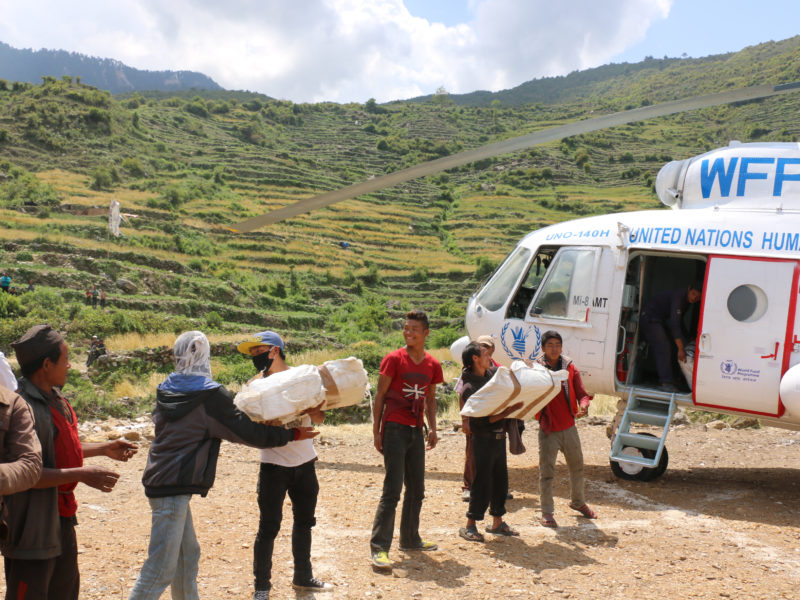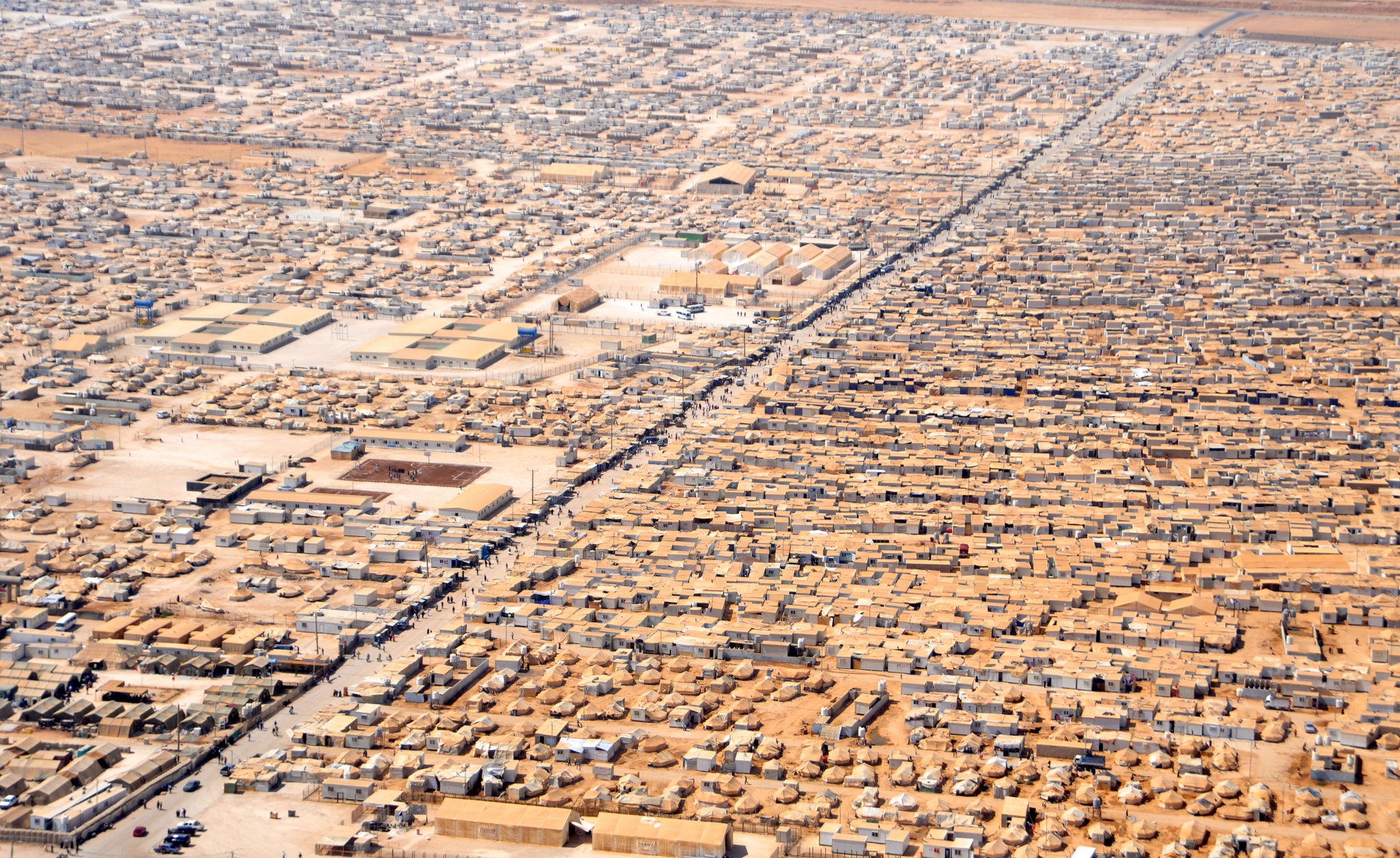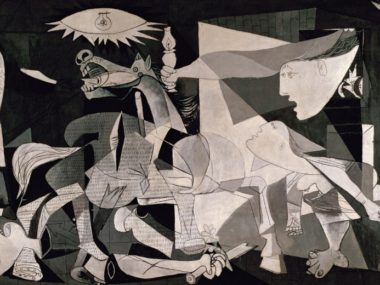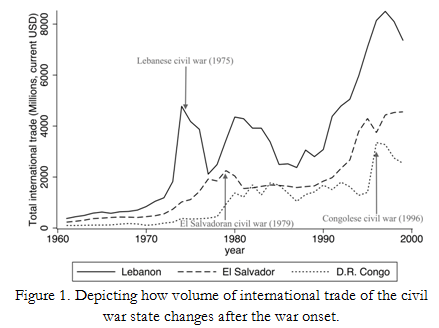By guest contributor Sarah Tucker and permanent contributor Timothy D. Sisk
Tomorrow, the Norwegian Nobel Committee will award this year’s Nobel Peace Prize to the World Food Program (WFP) “for its efforts to combat hunger, for its contribution to bettering conditions for peace in conflict-affected areas, and for acting as a driving force in efforts to prevent the use of hunger as a weapon of war and conflict.” The 2020 award underscores the self-reinforcing nature of the relationship between conflict and food insecurity, and the persistent symbolism of the world’s “most prestigious prize” in highlighting the relationship between humanitarianism and the pursuit of peace.
The presentation of the prize in Rome to WFP executive director David Beardsley—unusually, as the prize is typically awarded in Oslo but the ceremony is principally virtual this year—comes at an auspicious time: on December 1, the United Nations Office of the Coordinator of Humanitarian Affairs (OCHA) released its Global Humanitarian Overview 2021. The situation it describes is grim. The COVID-19 pandemic has severely worsened an already dire crisis; escalating conflicts, displacement, and gender inequality and violence, combined with disease, has led to a humanitarian catastrophe: More than 77 million people in 22 countries face acute hunger, and an unprecedented 270 million people are acutely food insecure. One in 33 people globally need assistance.
Food insecurity is at the heart of the conflict trap
The Rome-based WFP is the world’s largest humanitarian organization devoted to addressing hunger and promoting food security. In 2019, the WFP provided assistance to victims of acute food insecurity and hunger in 88 countries.
The committee’s decision to award the Peace Prize to WFP underscores an essential truth articulated by American psychologist Abraham Maslow in his 1943 essay “A Theory of Human Motivation”: that the provision or denial of essential needs strongly impacts human behavior, and among these needs, food security remains a central condition for peace. Denying the right to food and nutrition drives violence and contributes to the vicious cycle of the conflict trap. In fragile and conflict-affected contexts, food insecurity is both a causal precursor of violent conflict and a severe consequence of such conflict, and provision or denial of access to food is at times used a weapon of war. As Henk-Jan Brinkman and Cullen Hendrix conclude in an analysis of causal linkages among conflict and food insecurity:
Food insecurity is linked to increased risk of democratic failure, protests and rioting, communal violence, and civil conflict. Violent conflicts, in turn, create food insecurity, malnutrition and—in some instances—famine. Thus food insecurity can perpetuate conflict, although its effects depend on the context, with the strongest links evident in states that already have fragile markets and weak political institutions.
WFP programs providing emergency food relief not only prevent hunger; they also help to improve prospects for stability and peace.
In its 2019 report, The World Food Programme’s Contribution to Improving the Prospects for Peace, the WFP emphasized the contributions of food security interventions in long-term peace building efforts. WFP-facilitated research suggests there is good evidence that food interventions can address the root causes of conflict through strategic initiatives such as “livelihood support to increase agricultural productivity, programmes to rehabilitate and improve access to relevant natural resources and measures to reduce food price volatility.” The WFP report, and other analysts such as Hendrix and Brinkman, agree that appropriately designed interventions for food security may generate peace dividends, reduce conflict, enhance social cohesion, and improve the legitimacy and capacity of governments. Overall, food security interacts with local social dynamics in ways that contribute to community resilience in conflict-affected countries.
Food security and the responsibility to protect
The 2020 prize reflects deep-seated global angst about the soaring humanitarian costs of armed conflict and the importance of civilian protection in war zones. Although global norms such as the Responsibility to Protect (R2P) are contentious, the 2020 Nobel Prize reinforces the imperative of civilian protection and the responsibility of states to ensure compliance with R2P principles.
More specifically, the WFP prize reinforces the need for global, multilateral action to address the problem of hunger as an act of war—as reflected in UN Security Council Resolution 2417—and the UN’s role in holding actors accountable for the use of food as a weapon in war and its definition as a crime against humanity. As the effects of the COVID-19 pandemic, and longer-term threats such as climate change, increase vulnerability to conflict, is critical to underscore that inhibited access to food and nutrition set the stage for future conflicts. Food insecurity is a threat multiplier. In Syria, sieges of communities such as Aleppo and Homs have led to starvation, and in Yemen port blockades have contributed to the food insecurity conflict trap by inhibiting delivery of humanitarian relief in modern-day examples in which access to food has been a weapon of war.
The Nobel Prize’s call to action
The 2020 Nobel Prize highlights WFP’s effectiveness in helping to alleviate food insecurity globally, and serves as an endorsement of its strategic approach, which blends short-term relief with long-term approaches to peace-building to address the underlying, root-cause drivers of food insecurity. The 2020 prize also recognizes that acknowledging the horrors of existing wars is an essential motivation for renewing conflict prevention efforts to bring current conflicts to an end and prevent the escalation of new wars.
Mark Lowcock, the UN OCHA Coordinator, warns starkly that “the pandemic has reaped carnage across the most fragile and vulnerable countries on the planet.” The 2020 prize is a well-deserved, poignant award on the links between humanitarian crises and conflict, and a prescient warning that failure to address essential human needs sets the stage for future wars.
Sarah Tucker is an MA candidate and ICRS Scholar at the Institute for Comparative and Regional Studies (ICRS) at the Josef Korbel School of International Studies, University of Denver, and Timothy D. Sisk is the Institute’s Director. The authors thank participants in the October 9 ICRS event “The Nobel Peace Prize 2020: An Expert Appraisal”—Pamela Aall, Deborah Avant, Scott Gates, and Fred Tanner—for their insights reflected here.





